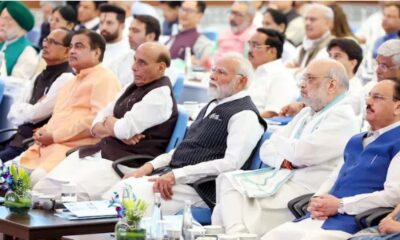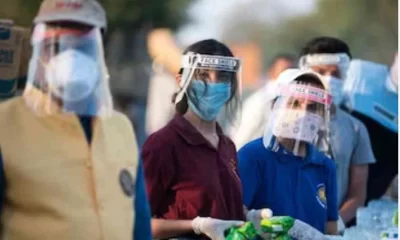India News
Centre suggests states to consider restrictions for new year
The Centre has suggested a series of restrictions to avoid super spreader events and places where crowds may gather for new year celebrations in the backdrop of Covid-19 and the new strain that has reached India with people returning from the United States.

India News
Manipur Assembly to meet at 4 pm today, floor test likely under new chief minister
The Manipur Legislative Assembly will convene at 4 pm today, with a floor test likely as the new chief minister seeks to prove his majority in the House.
India News
PM Modi skips Lok Sabha reply as protests force repeated adjournments
PM Modi did not deliver his Lok Sabha reply today after sustained Opposition protests led to repeated adjournments over a dispute involving Rahul Gandhi’s proposed speech.
India News
President’s Rule revoked in Manipur as NDA set to form new government
President’s Rule has been withdrawn in Manipur nearly a year after its imposition, paving the way for a new NDA-led government under Yumnam Khemchand Singh.
-

 India News23 hours ago
India News23 hours agoPM Modi skips Lok Sabha reply as protests force repeated adjournments
-

 Latest world news9 hours ago
Latest world news9 hours agoNew Delhi free to buy oil from any source, Russia says amid US deal claims
-

 Latest world news8 hours ago
Latest world news8 hours agoPakistan faces domestic backlash after India secures lower tariffs in US trade deal
-

 Cricket news9 hours ago
Cricket news9 hours agoPakistan PM Shehbaz Sharif confirms boycott of India match at T20 World Cup
-

 India News5 hours ago
India News5 hours agoManipur Assembly to meet at 4 pm today, floor test likely under new chief minister
















